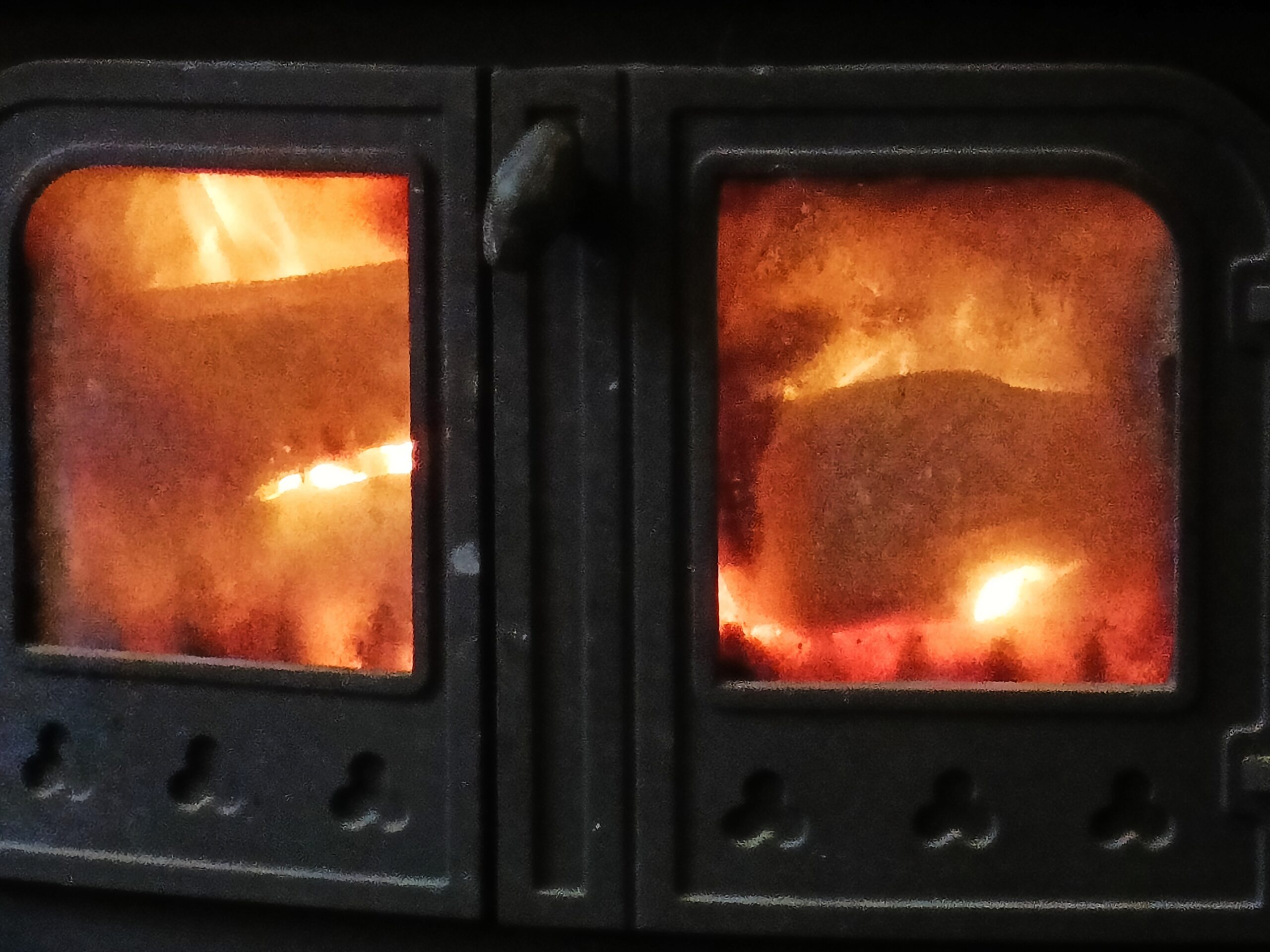AN air quality expert said burning wood to heat homes was an increasing pollution issue in Wales, and he questioned whether those who did it cared about the impacts.
Emeritus professor Paul Lewis, of Swansea University’s school of medicine, said better information was needed at all levels and that this could help people with wood burners make decisions.
The issue was discussed in a Swansea Council scrutiny meeting, where councillors were told that tighter regulation was being considered by the Welsh Government. Prof Lewis said he expected this would affect suppliers, covering things like the type of wood sold and its moisture content.
The Welsh Government said burning dry, seasoned wood, especially when using a modern, efficient wood burner, emitted significantly less fine particulate matter than burning wet wood.
A spokesman said: “We have consulted on restricting the sale of wet wood and house coal, and expect to publish a summary of responses the spring. This will include details of our proposed next steps in this area.”
But ministers are mindful of any restriction or prohibition which impacted on fuel poverty, especially in rural areas where wood was the primary source of heat.
Cllr Mary Jones brought up the issue, saying people living upwind of wood-burning houses had to put up with the emissions. “I have to say, they absolutely stink, is the best way to put it,” she said.
Tom Price, the council’s lead pollution control officer, said 21% of emissions of a tiny pollutant which penetrated deep into the lungs and could enter the bloodstream, called PM2.5s, were caused by wood burning. He said the number was previously thought to have been 38%.
Prof Lewis, who has been working with the Welsh Government on the matter, said: “Wood burning is an increasing problem in Wales, and I think the council is right to highlight that, not just in Swansea.”
He said there was a question of whether people who burned wood “care or not”, and added: “I think that’s our biggest problem. So the government are looking at strategies for behavioural change in terms of educating people with wood burners in terms of health impacts etcetera.”
The impacts, he said, particularly affected people with cardiovascular and respiratory diseases.
Cllr Will Thomas said it was an important matter, but added: “We don’t want to become a nanny state telling people what they can and cannot put in their stoves. That would be an issue for me.”
Prof Lewis said owners of wood burners would benefit from better information about what they put in them and what the associated impacts were. He said the impacts affected the owners as well as neighbours.
Cllr Jones said she disagreed with Cllr Thomas’s “nanny state” comment, saying that neighbours had no choice but to live next to people with wood burners.
Cllr Jones said there was one householder she was aware of where builders dropped off waste wood of all descriptions. She said it appeared to be used for two wood burners inside.
Mr Price said council officers could investigate, and that people should never put treated timber in their wood burners. He added: “Trade should not be dropping off trade waste.”
Mr Price, when asked, said there were existing powers to deal with bonfires if they were deemed to be a nuisance. Mostly it involved the council advising and educating people. He added: “There is always the small minority where we will have to ‘go formal’.”
Please donate here: Support Carmarthenshire News Online Thank you for supporting independent journalism and contributing to the future of local news in Carmarthenshire. Carmarthenshire News Online has been dedicated to providing unbiased and trustworthy news, free from commercial or political influence. By donating as little as £1, you can help ensure the continuation of this important source of information for the community. Your contribution will have a significant impact on the sustainability of independent journalism. If you're looking to enhance your brand's visibility, we also offer advertising opportunities on our Livestream and podcasts. Our special offers provide excellent value for reaching our engaged audience. To learn more about these opportunities and to discuss your advertising needs, please feel free to call or text us at 07308598604. Thank you again for your support, and together we can ensure the availability of quality local news for Carmarthenshire and beyond.
Please donate here: Support Carmarthenshire News Online









